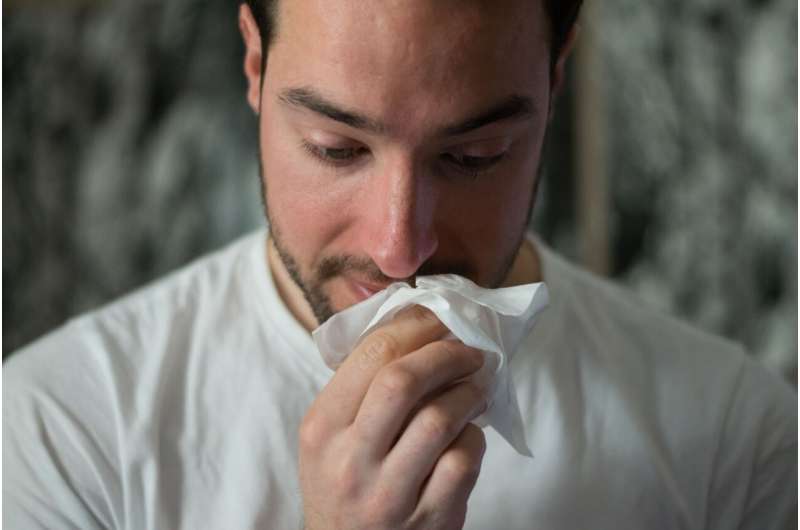Trees are blooming and allergies aren't far behind

Cedar, Maple and Junipers are among the trees showing their buds across the Tristate, a telltale sign that allergies are also in tow.
"Allergy season is here and what we tend to see in the spring is more trees blooming and as a result, releasing their pollen into the air," explains Katie Phillips, MD, an associate professor in the University of Cincinnati College of Medicine and a UC Health physician who specializes in ailments of the ear, nose and throat. "That comes with itchy eyes and noses, runny noses, nasal congestion, and if you have asthma there is a greater chance of it acting up."
Up to 60 million Americans suffer from allergic rhinitis or hay fever, according to the Centers for Disease Control and Prevention. It occurs when allergens, like pollen, enter the body and our immune systems mistakenly identify them as a threat.
"People can have a certain period of time where their allergies act up or perennial allergies caused by dust, pets or indoor allergens rather than things in the outdoor environment," says Phillips.
"It's good to know if you have allergies or not," says Phillips. "If you are unsure and you suffer from nasal congestion, runny nose and itchy eyes, you may want to think about getting tested for allergies."
Some over-the-counter regimens may help with allergies. Nasal corticosteroids and nasal antihistamines can help reduce inflammation in the nasal airways if used properly, explains Phillips. Allergy sufferers can also consider rinsing their noses with salt water during the peak of allergy season.
If symptoms don't ease, visiting an allergist or ear, nose and throat specialist is the next best option.
"If you have been allergy-tested, we know what you are allergic to," says Phillips. "The next step may be immunotherapy. While medications treat your symptoms, immunotherapy changes the way your immune system works so you react less to things you are allergic to and potentially require less daily medications."
As part of immunotherapy, physicians either inject very small amounts of a substance you are allergic to into your arm or place it under the tongue. The dose is increased incrementally and changes the way the immune system works to desensitize the body, says Phillips.
"It's not an overnight improvement, but you will notice an effect over time, typically after undergoing immunotherapy for about a year," explains Phillips.
Another option is to learn what you are allergic to, so you can avoid it. Peak allergy season for trees occurs when a tree starts to bloom usually in the spring. Area residents can follow pollen and mold trends online and stay abreast of the region's air quality.
People with allergies are more likely to have sinus disease and nasal polyps and there are now new medications—a monthly shot that can be used instead of surgery, says Phillips.
Ear, nose and throat specialists are sometimes asked if an individual can grow out of allergies. "It may not be that you ever grow out of them, but they can become less severe," she noted. "The best fast way to grow out of allergies is to get immunotherapy."
A few more tips to combat allergies also include:
- If you know a high pollen count is forecasted, start taking allergy medication before symptoms begin
- Closing doors and windows when pollen counts are high; using air conditioning to stay comfortable
- Avoid outdoor activity when pollen counts are high
- Use a dehumidifier inside
- Use high efficiency filters in heating, ventilation and air conditioning systems and keep them clean
- Wear a pollen mask if you have to be outdoors during peak allergen periods
- Rinse your nose with nasal salt water rinses after coming inside for the day during allergy season
Some residents get confused when it comes to distinguishing between allergies, COVID-19 and other respiratory concerns. Phillips acknowledges it can be difficult, but she offers some advice in helping to make a determination.
"If you do have a history of allergies and these are the same things you experience every year then it is more likely to be allergies than COVID-19," says Phillips. "Individuals with COVID don't have the itchy eyes or recurrent sneezing. With COVID you have a fever and you don't have it with allergies. You also have the significant loss of taste and smell with COVID, but not typically with allergies."





















